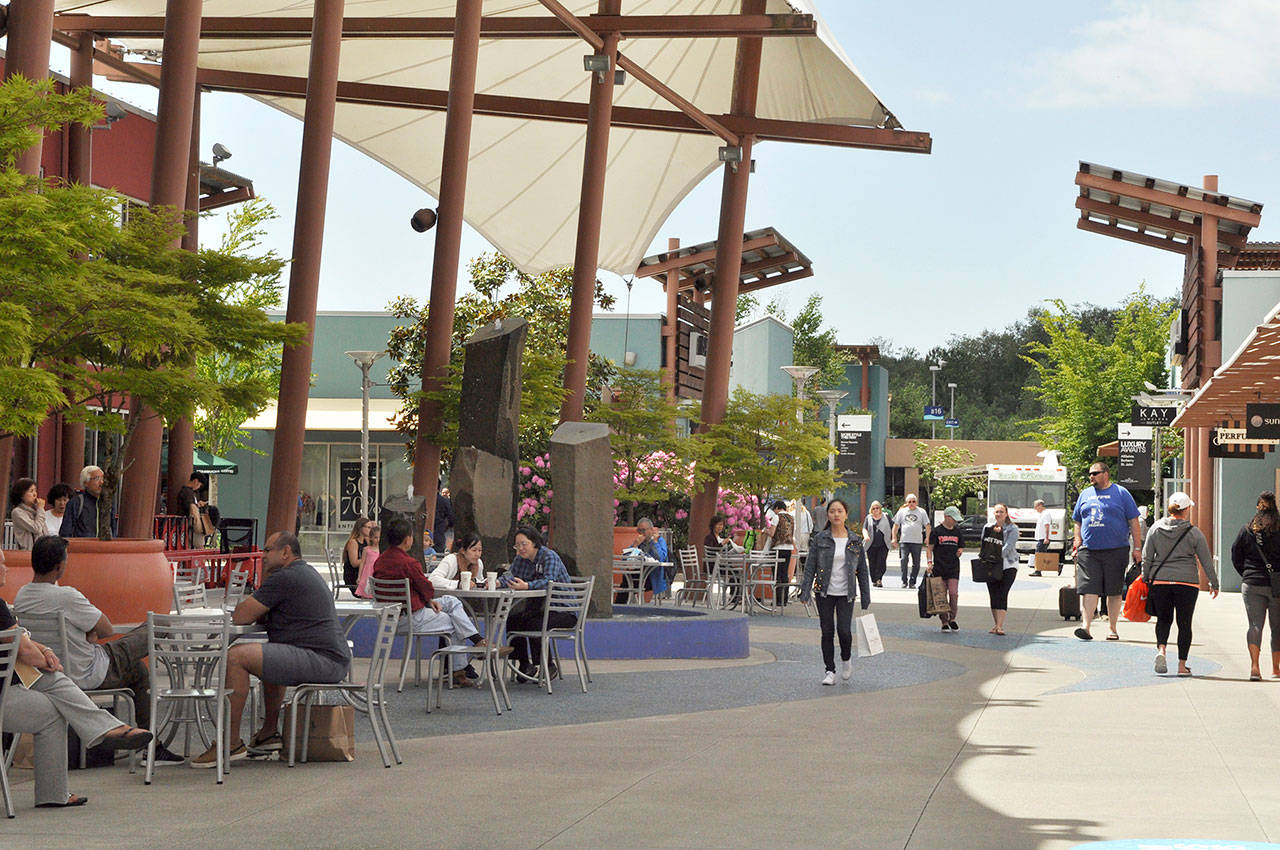OLYMPIA — Lawmakers took their first step Thursday to get the state and tribal governments to stop fighting over sales tax dollars and start sharing them.
At hearings in the House and Senate, legislators considered bills granting the governor authority to enter into compacts with tribes to divvy up the state’s portion of sales collected from non-tribal member businesses on reservations.
Under House Bill 2803 and Senate Bill 6601, which are identical, a tribe could wind up gaining anywhere from a few hundred thousand dollars to tens of millions a each year depending on the extent of its commercial developments.
“We share sovereign authority between governments. We share the responsibility to care for our people, to provide opportunities, and to create a better world for our children,” Gil Brewer, senior assistant director of the state Department of Revenue told the House Finance Committee. “This bill finally recognizes that it’s past time that we also share the revenues that result from our shared efforts, and enable each of us to contribute to meeting those shared responsibilities.”
A trio of tribal leaders said the ability to negotiate tax compacts would open a new chapter in state-tribal relations. All three testified in the House hearing and the ensuing one in the Senate Ways and Means Committee.
“This is, I believe, a breakthrough,” said David Burnett, chief executive officer of Chehalis Tribal Enterprises. “This has been a long time coming.”
Bill Iyall, chairman of the Cowlitz Tribe, and Brian Cladoosby, chairman of the Swinomish Tribe, said compacts will reduce conflict between tribes, local governments and the state, and produce better economic results for communities.
“Good compacts make for good governance,” Cladoosby said.
The impetus for the legislation is an agreement the Tulalip Tribes reached this month with the state and Snohomish County to settle a federal lawsuit on who is rightfully entitled to sales tax receipts generated at the booming Quil Ceda Village shopping center.
That deal, embodied in a Jan. 8 memorandum of understanding, only affects the state’s portion of sales and use tax paid by non-member customers of non-member owned businesses like Walmart and Cabela’s. It ensures Snohomish County will continue to receive its allotted share.
Under that accord, the tribe stands to receive an estimated $4.1 million this budget cycle, with the sum growing to an estimated $30.2 million in 2025.
Before most of the revenue-sharing kicks in, the tribe will spend $35 million to design and build a 48-bed civil commitment center in the county, a capital investment sought by the state.
But the three-party agreement will not be in force unless lawmakers act. Passage of a new law would enable the state and Tulalips to write the terms of the Jan. 8 agreement — including building of the commitment center — into the state’s first revenue-sharing compact.
“As Quil Ceda Village has proven, economic development in Indian Country is good for everybody,” Tulalip Tribal Board Chairwoman Teri Gobin told the committees.
Rep. Gael Tarleton, D-Seattle, sponsor of the House bill and the finance committee chairwoman, lauded the efforts that resulted in the agreement.
“This is what a real partnership, not only revenue sharing but community caring, looks like. Thank you,” she said to Gobin.
The memorandum of understanding is the template for the language of the legislation.
A compact would allow a tribe to retain a portion of sales and business taxes generated from transactions between non-tribal member businesses and non-tribal member customers on tribe-owned property or trust land, according to an analysis of the legislation.
Once a compact takes effect, a tribe would be eligible to receive the state’s first $500,000 of sales and use taxes in each calendar year.
The tribe could receive 25 percent of any sales tax above that amount from any new development. It would rise to 60% if the tribe makes a qualified capital investment.
After signing a compact, a tribe will need to wait until the fourth calendar year before getting any share of taxes from existing commercial development.
At that point, they can get 25% of sales tax above the $500,000, or 50% if they carry out an investment.
On Thursday, over the course of two hearings, there was one question of concern.
Rep. Drew Stokesbary, R-Auburn, asked Brewer of the Department of Revenue, why this path was pursued after a federal judge ruled in the state’s favor against the Tulalips in 2018.
The tribe appealed, Brewer said. If the state lost at the higher court, it could have been pre-empted from imposing any sales or business taxes, effectively leading to tax-free zones at all 29 reservations.
At the end of the House hearing, Tarleton made clear there’s work to be done.
“This only begins the legislative journey,” she said.
Jerry Cornfield: 360-352-8623; jcornfield@heraldnet.com. Twitter: @dospueblos.
Talk to us
> Give us your news tips.
> Send us a letter to the editor.
> More Herald contact information.


























